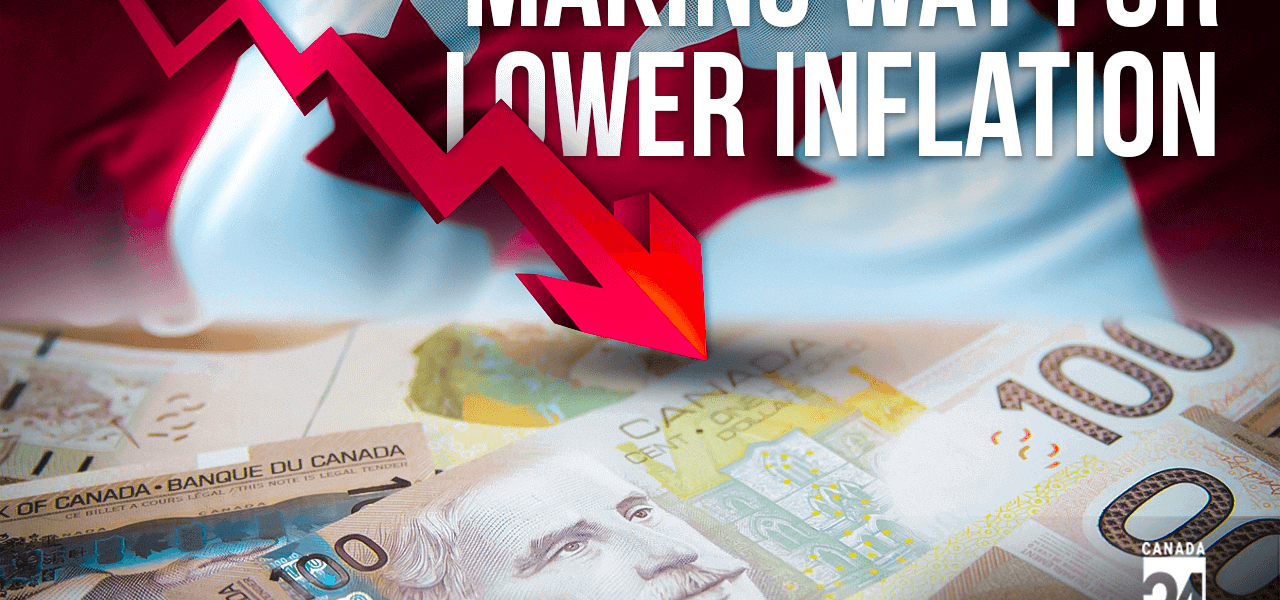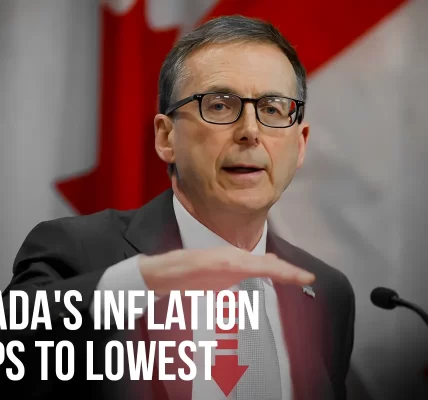More Canadians To Feel The Pinch Of High Rates In 2024, Making Way For Lower Inflation
The central bank has been able to maintain its benchmark interest rate at 5% for the past few months thanks to significant rate hikes that are finally starting to pay off. Lower inflation has resulted from a reduction in consumer and company spending due to higher borrowing costs. It is anticipated that the economic downturn will set the stage for interest rate reductions as early as mid-2024, which would represent a sea change in the battle against inflation.
Although the central bank’s rate increases have assisted in controlling inflation, the chief economist at Desjardins notes that an easing of global price pressures has also caused a significant portion of the decrease in price growth. “We anticipate 3.1% inflation, which is significantly less concerning than it was a year ago,” stated Jimmy Jean, Desjardins’ chief economist. “And, sure, I believe that the bank’s actions have had a part. However, there is also the aspect of things that were anticipated to (resolve) on their own.”
Numerous worldwide elements that precipitated the sharp cost increase, such as disrupted supply networks and elevated energy costs, have diminished. The remainder of the work is now being done by high-interest rates.
For Canadians, especially lower-income households that have been worst hurt by rising grocery and rent costs, the news of price stability being restored will be welcome. It will be challenging to return to low and stable inflation, though. The first group of people affected by rate increases were those with variable-rate mortgages. However, as time goes on, more homes are beginning to feel the pinch as well.
Next year, more Canadians are anticipated to renew their mortgages at higher interest rates, which will compel them to make further cost reductions. According to Paul Beaudry, a former deputy governor of the Bank of Canada, this illustrates how interest rates and inflation have different impacts. “The tools that are used at the Bank of Canada, especially the interest rate, hits people very, very differentially,” said Beaudry. “On the one hand, it’s important to remember the groups that profited from lower inflation. On the other hand, other groups suffered more as a result of rate increases.”
By the end of November, payments on roughly 45% of mortgages obtained before the central bank’s rate increases had increased, according to Bank of Canada experts. Nearly all of the remaining mortgage holders in this group, according to the researchers, will renew by the end of 2026, which means that their payments will probably increase as well. It is anticipated that the economy will be negatively impacted by this wave of mortgage renewals.
According to forecasts, 2024 will see modest economic growth before it picks back up at the end of the year. While some forecasts anticipate the economy to stay just above water, Desjardins predicts a moderate recession in the first half of the year.
However, if the economy avoids going into recession and inflation returns to 2%, it will indicate that the central bank was able to balance raising rates just the right amount without going overboard.
A weaker economy would likely result in fewer job possibilities and slower salary increases for workers. It is anticipated that the unemployment rate will continue to rise in the upcoming year, having crept up to 5.8% in November. According to Desjardins’ projection, the unemployment rate will reach a height of 7.0% during the upcoming third quarter of the year.
Over the past few years, the Bank of Canada has come under intense political scrutiny regarding its policy actions made in the wake of the COVID-19 outbreak.
Notably, Pierre Poilievre, the leader of the Conservative Party, promised to remove Governor Tiff Macklem, accusing the central bank of causing the inflation spike and funding government expenditures. Others, such as premiers and New Democrats, have voiced opposition to the quick rate increases due to the financial hardship they would place on people.
According to Beaudry, the politicization of the central bank during this time of high inflation highlights the need for a central bank that is capable of making the right choices, even if they are unpopular. “The extent to which it becomes politicized during an inflationary environment is hardly surprising. The crucial aspect, in my opinion, is to see how the bank’s credibility will be perceived when all of this is finished and people can look back. It will probably have a good deal of credibility, Beaudry predicted.





